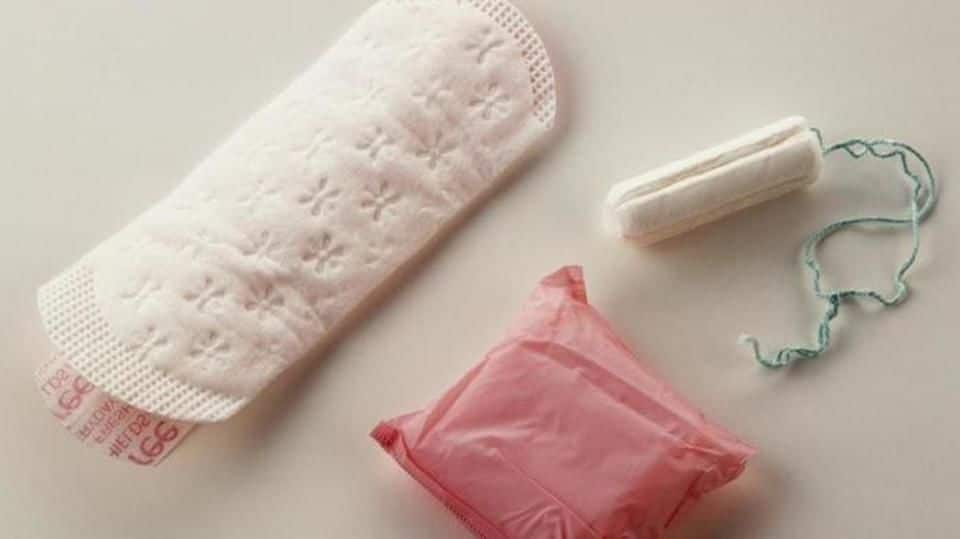
Can PadMan help address India's period woes?
What's the story
In India, condoms and bindis/sindoor are tax-free, but not sanitary pads.
A 12% GST (a tax-slab for luxurious goods) is levied on them. During the indirect-tax regime, it was 13.7%.
India's first mainstream film on menstruation, PadMan, is about to release, but sanitary pads still remain inaccessible to millions of bleeding women.
Here, we look at India's period revolution and the long road ahead.
Protest
Gwalior social-workers to send 1,000 signed pads to PM Modi
Wanting to make sanitary pads tax-free and buyable for every woman, a group of social workers in Gwalior started a campaign on January 4.
They are urging women to write on sanitary napkins their views on menstrual hygiene. They aim to send 1,000 signed pads to PM Narendra Modi by March 3, forcing him to reconsider the ridiculous taxation on an item of necessity.
Twitter Post
GST on sanitary pads no more
#MadhyaPradesh: A group of social workers in Gwalior start a campaign encouraging women to write down their views on menstrual hygiene on sanitary napkins to mark their protest against it being placed under 12% GST. pic.twitter.com/1SKIFiuErP
— ANI (@ANI) January 9, 2018
Private initiatives
A digital bank for sanitary napkins
This is the latest in a series of individual initiatives to ensure that more women use safe and hygienic methods during menstruation.
Last year in May, Mumbai's Bharati Lavekar launched India's first digital bank for sanitary pads. teefoundation.in helps people donate pads or money, providing an accessible platform to those in need.
Moreover, it provides free pad to tribal girls and zilla parishad schools.
New-age startups
Low-cost, safe, quality pads for all
Several homegrown start-ups have mushroomed giving women low-cost, non-toxic Indian options over Whisper, Stayfree and the like.
Saral Designs, for instance, sells pads (called Active), vending machines and even a manufacturing unit, if you want to make your own pads.
Robust Solution also manufactures sanitary napkin vending machines. Online platform Those5Days facilitates doorstep delivery of wide-ranging female hygiene products across 20,000 postal codes.
State efforts
Bhopal becomes India's first railway station to have pad vending-machine
State governments are also trying to destigmatize the period taboo and offer relief measures.
Bhopal on Tuesday became India's first railway station to have a sanitary pad vending machine.
Himachal's Kullu district launched a year-long campaign called Naari Samman on January 1 to discontinue chaupadi, a popular practice in the hills that banishes women to live in cattle sheds on days they menstruate.
Online campaigns
Despite countless attempts, periods still mystified, not discussed openly
Innumerable social media campaigns such as #LahuKaLagaan, #HappyToBleed, #BloodNormal have tried to normalize menstruation, make governments understand that period hygiene is a priority issue, spread awareness and demand a realistic portrayal of menses in media.
However, despite it all, Instagram in 2015 pulled down an image of Rupi Kaur, showing blood stains on her trousers. We are still so afraid of a bleeding woman.
Information
Only 12% of menstruating Indian women use sanitary napkins: Report
According to a recent study published in the International Research Journal of Social Science, only 12% of menstruating women in India use sanitary napkins. Rest 88% depend on hazardous, unhygienic ways such as unsanitized cloths, ashes and husk sand.
Big leap
PadMan: The superhero India needs right now
That Akshay Kumar's PadMan got made is a giant leap forward in India's period revolution.
A superstar becoming the face of an age-old struggle for health and survival of millions of faceless women can only be good news. It legitimizes the fight in the eyes of the ignorant and the conveniently oblivious.
There can be no going back now. The only way is forward.